Quite a lot in photography has to do with making decisions. From where to shoot, at what time to shoot, which lens to use, which type of light to use. Not to mention the editing phase where you have to decide which photo is the best and what to do with it.
Last week we finished a six-day workshop in Cape Town, South Africa, and with a busy schedule from morning till late night it was evident throughout the workshop that decisions are necessary. If you can't decide, you will never finish.
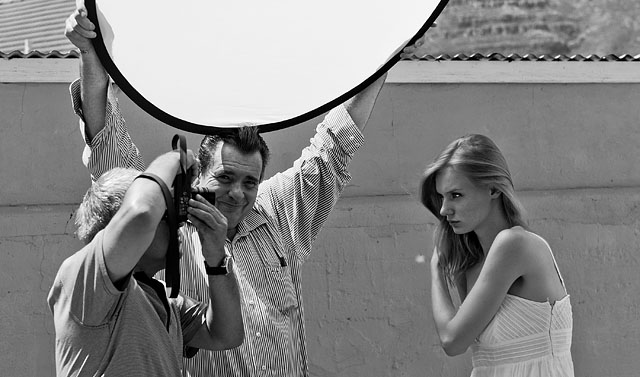
Ishrath and Bill photographing Olga on the Advanced Workshop in Cape Town
Normally people base decisions on information, and if we can't get the data we're stuck. If we are to buy a new printer or computer we collect data about prices, sizes, speed and all, and we might even go look at reviews so as to see if we missed something. When we are confident, we can decide and act.
In photography the information about right or wrong is not available. There is no guide telling you that if you shoot from that angle it will be better than from this. Most things that matter in photography are based solely on what you think might work.
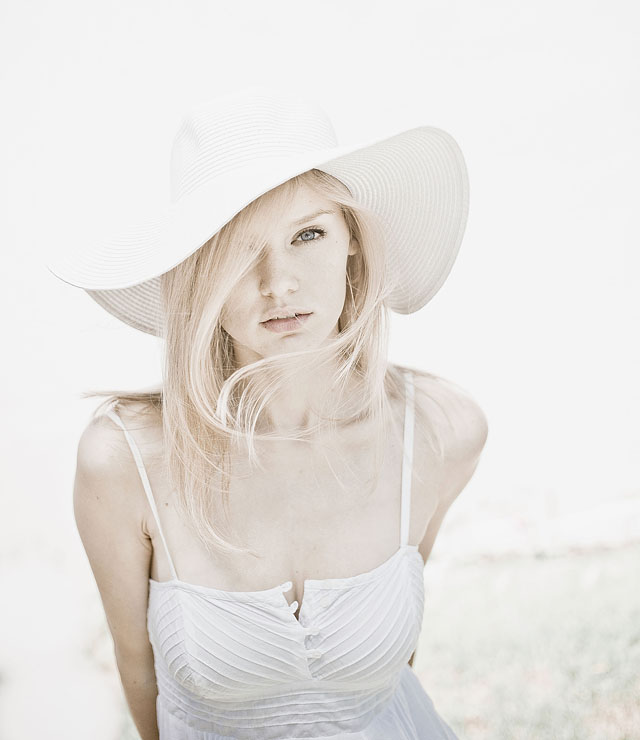
Model Olga Grbich photographed in Cape Town. Leica M9 with 35mm Summilux-M ASPH f/1.4
But in an age with websites that load the next step to do, announcements over speakers about when the next train is leaving, and automatic cameras that beeps or blinks when you are good to go and press the shutter, having to make decisions without data is quite interesting.
If you wait for an answer in photography, you will work very slow. But if you just make a decision, you will speed up the workflow considerably.
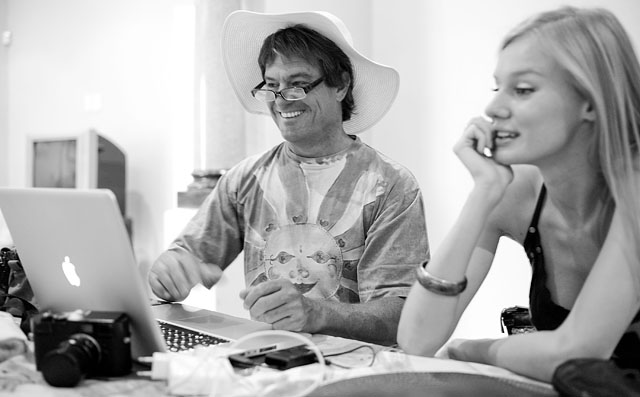
Guy editing photos with the model, wearing his thinking hat ...
Your responsibility in choosing the right photos
You will always take more photos than you need, and even more so in digital photography. But as the photographer it is your responsibility to select the few photos that others will see.
You may think you are doing a model a service by giving her all the images. But you don't. You have the idea, the vision and the final decision, so you select the few ones that are really great. Why should she have 20 of the same photo when one is the best? You risk her using all 20 and that would be less quality than using only one great photo.
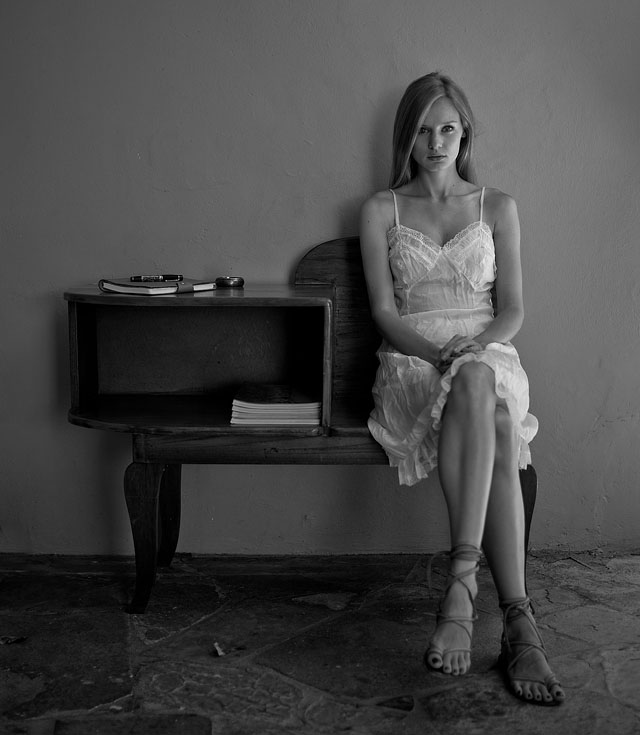
Model Olga Grbich photographed in Cape Town. Leica M9 with 35mm Summilux-M ASPH f/1.4. This is the one I seleced amongst 40+ photo of the came location. And I also decided to make it darker and softer than it was. Quite contrary to the photo on top that I decided to make considerably brighter.
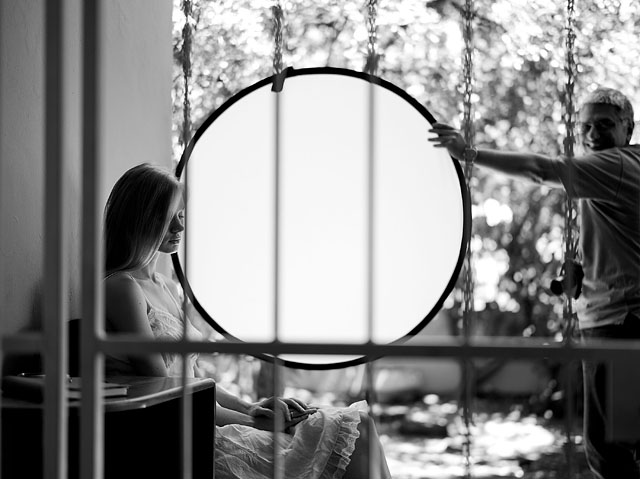
Ishrath holding a silk screen so we get really soft light on the model.
Cropping, color or black and white?
When editing and selecting, how much should you change the exposure. How should it be cropped? Perhaps black and white instead of color?
You want to ask somebody what they think, but the problem is that nobody really can know what your vision is and how great it could look if you did it 100%. So the more people you ask, the more ideas you will get. And what you need is a final picture that looks really extraordinary.
When you are done you can collect responses and learn. But the process of deciding is yours solely.
Presentation
Often what looks good has to do with presentation and who will be seeing something. There is a difference between selecting and finishing photos for Facebook, a magazine, some friends or an exhibition where prints will be hanging on a wall. Some pictures are good for some things, others are good other things. And sometimes the same picture may be cropped or edited different to suit the different types of presentations.
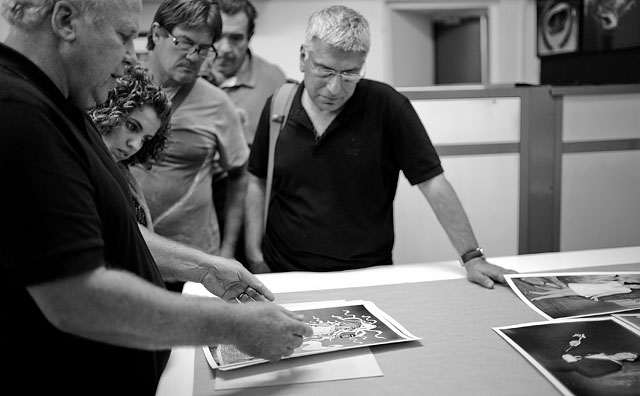
Looking at print with Mike of Orms in his camera store and photo lab in Cape Town. Next year the seminar will include a printing workshop so we can set up a printing workflow and finalize a selection of our photos as prints.
Waiting for the OK to go
In photography, the data you are missing don't exist till you decide. And the photos doesn't exist till you decide to make them. So stop waiting. And mainly, stop waiting for approval of your wish to express yourself through photographs.

Join Cape Town March 2013
You may already now reserve place in the March 2013 workshop in Cape Town. It will be a six-day workshop from basics over Advanced Workshop, and additionally a Printing Workshop in a very unique lab and printing facility. Send an e-mail for more info or see this link.
![]()
